
It relieves and fights against colds and flu
The specialists at Medicinas created Coviflu, a natural remedy obtained from natural ingredients, that can be found as pills administered one per day, for ten days.

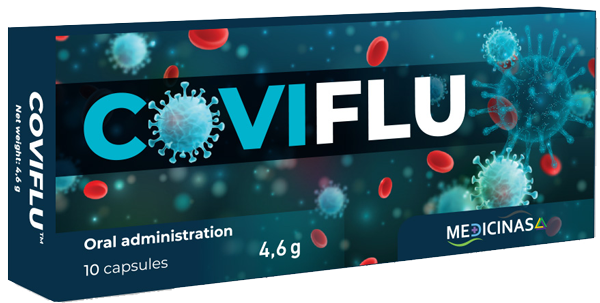

Cold and influenza are viral infections of the upper respiratory tract, highly frequent among people of all ages. According to the statistics made throughout the years, adults face two – five episodes per year, and children present seven and maybe ten episodes per year. These infections can be now easily controlled since the specialists at Medicinas created Coviflu, a natural remedy obtained from natural ingredients, that can be found as pills administered one per day, for ten days.
Coviflu is a natural remedy recommended to prevent and treat cold and influenza, being available in 10-tablet blisters, to be administered one tablet per day.
Order with discount




Order any COVIFLU package and benefit from delivery in 48 hours, by courier!
Order nowDELIVERY
IN 48 HKnown especially for the amazing aroma they give to wine, cakes or compotes, cloves are an excellent source of vitamin K, potassium, beta-carotene and eugenic, an antioxidant that has the amazing power to strengthen the immune system, but also to prevent symptoms cold and flu. Cloves are also rich in eugenol, a nutrient known for its antiseptic and anesthetic properties.
Vitamin D is found in the body in the form of vitamin D2, known as ergocalciferol and vitamin D3, called colecalciferol. It is known for its power to stimulate the activity of the immune system, as it can activate B, T cells and antigen cells, thus reducing the level of cytokines. Vitamin D is also responsible for enhancing the functions of vitamins A and C in the body.
Zinc, a mineral that is particularly important for the body's functioning, is found in the composition of Coviflu, as experts have established in scientific studies over time that it can help relieve the symptoms of colds and flu. Specifically, zinc is important in stopping the multiplication of rhinovirus, which causes a disease.
Acerola fruits contain, among others, vitamin A, magnesium, vitamin B5, potassium, but also vitamins B1, B2 and B3, which is why it helps relieve fever, helps strengthen the immune system by keeping diseases at bay and even helps stimulate production. of leukocytes, those white blood cells that help defend the body against viruses and bacteria.
Originally from South America and Southeast Asia, cinnamon is spice rich in antioxidants, volatile oils, calcium, magnesium, iron and fiber. One of its most important effects is that it fights viral and bacterial infections and also helps relieve headaches, which often occur with the flu or colds.
Cat's claw, this plant that is part of the composition of Coviflu, has antimicrobial, antiallergic and anti-infective properties, so it helps strengthen the immune system. It is also effective in fighting viral infections with Herpes Simplex and Candida. In addition, it reduces inflammation in the body, so that the immune system will become stronger.
Known for its beneficial properties since ancient times and used in China, Astragalus membranaceus has amazing health effects, being recommended even for the prevention and treatment of colds and flu, as well as other conditions such as asthma, hepatitis, hypertension, HIV and even certain forms of cancer. Being a rich source of nutrients, Astragalus root will help you have a strong immunity in the cold season, thus preventing the appearance of viral infections.
This plant has antifungal, antiviral, diuretic and anti-inflammatory properties, which is why it increases vitality and is an excellent source of vitamin C, thus helping to fight free radicals. At the same time, alfalfa helps detoxify the liver, helping to strengthen the immune system. Moreover, due to its high fiber content, alfalfa has the ability to absorb and eliminate toxins from the body.
Beta-carotene, that reddish-orange pigment, found in many vegetables and fruits, especially in carrots, is essential for the optimal functioning of the body, but also for combating diseases. Described as an antioxidant that turns into vitamin A as soon as it reaches the body, beta-carotene is indispensable for the optimal functioning of the organs. It also helps stimulate and function the immune system, increasing the production of white blood cells.
According to scientists, Echinacea helps stop the flow of the nose, soothes sore throats and reduces fever. At the same time, Echinacea has the power, according to specialized studies, to reduce the chances of developing a cold by 58 percent, which is why it must be used in the cold season, when the chances of developing a respiratory tract infection are older and also during this period there is the danger posed by coronavirus.
Hop cones are considered a real treasure for health, as they are a rich source of flavonoids, including quercetin, but also in free acids and esters. According to experts in naturopathic medicine, hop cone extract helps relieve discomfort, such as sweating, insomnia and irritability. Thanks to the compounds it contains, they are effective in ensuring a healthy sleep, increases digestion and increases appetite, thus improving the functioning of the immune system.
According to specialized studies conducted in recent years, Schizandra is an amazing plant, as it helps strengthen the immune system. It also has antioxidant and anti-inflammatory effects, which is why it protects the liver from oxidative stress, thus preventing the occurrence of serious diseases. It also helps to relieve the cough caused by lung diseases, but also to fight colds and fight infections caused by various bacteria.
Arginine, that amino acid effective for the synthesis of proteins and other processes in the body, has many benefits for the body, even helping to strengthen the immune system and prevent respiratory tract infections.
Cold and influenza are two of the more frequent respiratory infections, generated by the flu viruses that are highly contagious and can be easily transmitted from one person to another by the secretions eliminated by a patient when sneezing, coughing or speaking. While a cold can be caused by approximately 200 viruses and affects the throat and nose, influenza is generated by the A, B and C influenza viruses, yet there are more viral strains of the A and B viruses, determining the influenza epidemics.
If the cold manifests with abundant nasal secretions, blocked nose, sore throat, sneezing or coughing, influenza has a sudden onset manifesting with episodes of high fever of 38 – 40 degrees Celsius, muscle pain, abundant sweating, shivering, tiredness, or dry cough. All these symptoms can be improved with the help of Coviflu, a revolutionary natural remedy, newly launched on the market. Obtained from natural ingredients, among which Astragalus, black caraway, clove, Artemisia, propolis, licorice, buckthorn, and black garlic, Coviflu is natural remedy helping strengthen the immune system, and also improve and treat respiratory infections.
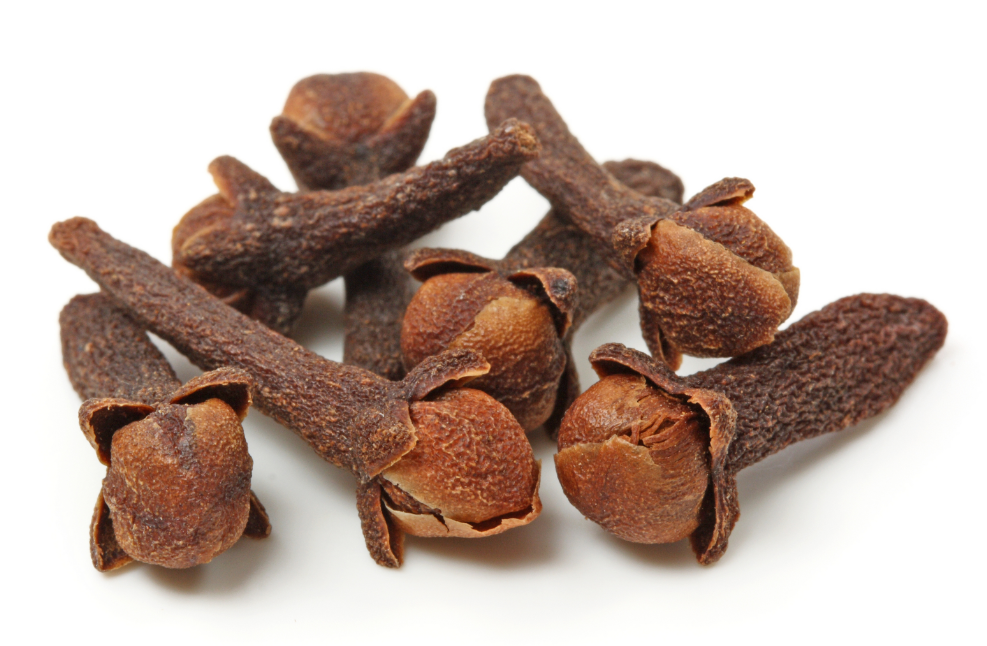

33%
DiscountOrder now the package with 3 boxes of COVIFLU for 30 days and benefit from 33% discount!
Order now
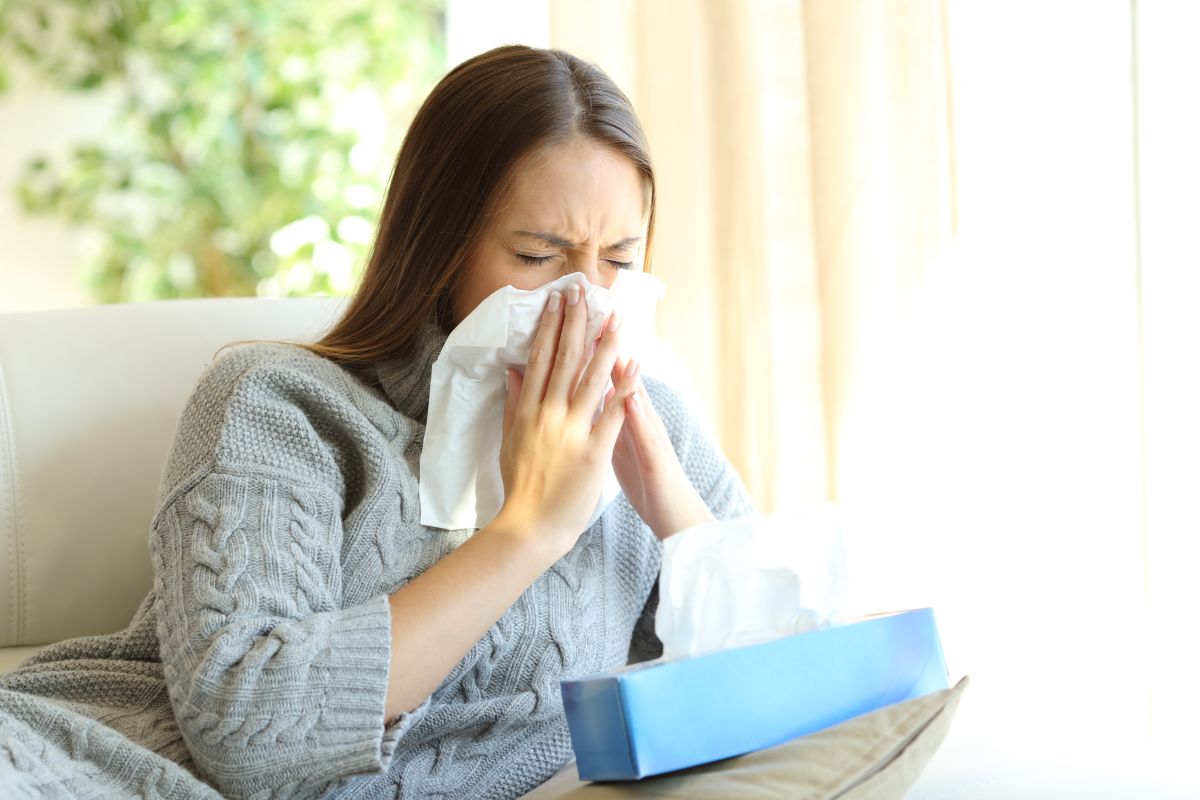
Thanks to the unique formula it contains, Coviflu is a trusty ally as far as cold and influenza are concerned, since the ingredients found in its composition have antiviral properties, helping improve the symptoms given by these infections (fever, cough, tiredness, blocked nose). What’s more, Coviflu is also recommended in improving bronchitis and pneumonia, since it contains Astragalus, an ingredient acknowledged for its extraordinary effects on health, and on strengthening the lungs.
The infections of the respiratory tract can be bacterial or viral, among which acute rhinosinusitis, chronic rhinitis, pharyngitis, tonsillitis, acute laryngitis, epiglottitis, acute larynx-tracheitis, acute or chronic bronchitis, obstructive chronic lung disease, asthma, or pneumonia. Coviflu is a natural remedy recommended in preventing and treating these affections, since it contains natural ingredients whose properties against cold and influenza are acknowledged since the times out of mind.
Thus, Coviflu does not only improve pain and reduce fever, but it also opens the nose and sinuses, helping you breath more easily, giving the body the quantity of vitamin C that is lost at the onset of the influenza infection and at the same time it fights shivering, cephalalgia, sore throat, improves nasal congestion, sinusitis and even pain. Coviflu contains, among others, propolis, reason for which it is also indicated to be administered as prevention, to protect the body from potential infections.
A sore throat or nasal secretions are usually the first signs of a cold, being then followed by coughing and sneezing. Many of the people facing a cold recover in 7 – 10 days, and to reduce the risk of facing this disease, you must take into account some simple advice: wash your hands frequently with warm water and soap, avoid contact with sick people and do not touch youyr face with your hands.
Common cold is one of the most frequent infections of the respiratory tract and represents the most claimed reason for abseinteism in school or at work. Usually, an adult can face on an average 2 - 3 cold er year, while several more in children, many of them in winter or spring.
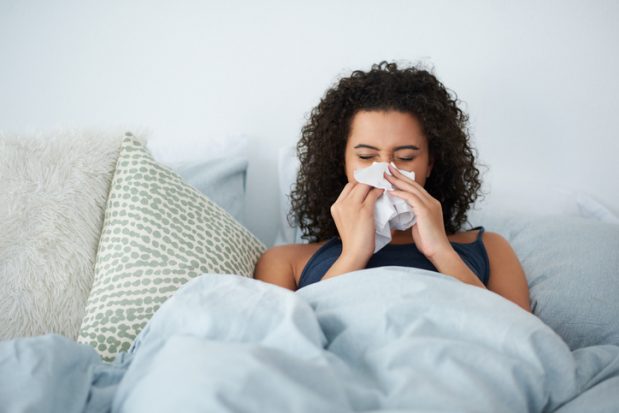
Common cold is a viral infection affecting the nose, throat, sinusis and breathways. Precisely why, common cold can manifest by sneezing, blocked nose, inflammed throat, coughing, nasal or ocular secretions, light headache, as well as muscle pain, all these reaching an evolution climax in 2 – 3 days from the onset.
Common cold is a contagious disease that can be triggered by a multitude of viruses. More precisely, scientists claim that 200 different types of viruses can trigger common cold, the rhinovirus causing 30% - 40% of the colds of an adult. Rhinovirus multiplies best at the temperatures inside the nose, and infection rates reach the climax in September until November and from March to May. Despite all these, the rhinovirus can cause a cold in any period of the year. In peak seasons, 80% of the colds can be due to rhinovirus.
Colds can also be triggered by other viruses, among which coronavirus, adenovirus or parainfluenza virus. Since there is a multitude of viruses to trigger a common cold, and since new viruses come up constantly, the body cannot build any protection against them. For this reason, common cold is a recurrent and frequent disease, and statistics show that pre-school children and primary school children can have from 6 to 12 cold per year, while with the adults, the number varies from 2 to four. Most of the colds appear in the autumn, winter and spring seasons.
What are the symptoms of a cold:
Common cold manifests by a series of symptoms that show up in a few days. Very seldom it happens that these have a sudden onset.
Common cold can manifest by nasal symptoms, such as congestion, sinus pressure, blocked nose, loss of smell or taste, coughing, sneezing, watery nasal secretions, post-nasal dripping. At the same time, common cold can manifest by watery eyes, headache, sore throat, coughing, swallen lymph nodes, tiredness, shivering, body aches, low fever, torax disconfort or difficulties in deep breathing.
How to protect yourself against a cold
According to cdc.gov, the viruses triggering a cold can be transmitted from infected people through air or by direct contact. At the same time, one can also get infected by contact with the respiratory secretions of an infected person. More precisely, one can get a cold when shaking hands with an ill person, or when touching a surface such as a doorhandle, having on it respiratory viruses, and then touching one nose, mouth or nose.

Thus, to reduce the risk of contracting a cold, one must respect the following rules:
Wash their hands often with water an dsoap – to prevent falling ill one must wash their hands for at least 20 seconds with warm water and soap. At the same time, if no water and soap are availble, alcohol-based disinfectant should be used. Viruses can live on hands, and washing reduces the risk of falling ill.
Avoid touching the eyes, nose and mouth with unwashed hands. The viruses triggering a cold can enter the body and make you ill.
Stay away from sick people. Sick people can transmit viruses by contact with those around them.
How to protect the ones around you
If you have caught a cold, you should follow that advice in order to prevent spreading the viruses to other people:
Stay home while you are ill and keep you rchildren home if they are ill.
Avoid direct contact with others, such hugs, kisses or handshakes.
Stay away from the people who sneeze or cough.
Wash you rhands after having coughed, sneezed or blown you rnose.
Disinfect frequently all surfaces and objects, such as toys and door handles.
When should you go see a doctor
Cold is an affection that heals by itself in 7 – 10 days. If on the contrary, the sypmtoms last longer than ten days, if they are severe or unusual or if you have a baby younger than 3 months facing fever or lethargy, you should go see a doctor.
At the same time, the people coming into the risk categories to develop complications, such as children below five, or adults above 65, as well as pregnant women or people suffering from asthma or heart diseases should go see a doctor.
Influenza is defined as being a contagious respiratory affection caused by the influenza viruses. At times, in certain severe cases, it can even lead to death, and unlike the cold, the symptoms have a sudden and violent onset.
According to cdc.gov, the incubation period varies between 1 and 4 days, and adults can infect other persons even before the onset of symptoms. The infectiousness period lasts up to 5 - 7 days from the onset of symptoms and this period can be exceeded in the case of children or of the persons having a weak immune system.
In the beginning, influenza manifests with fever, myalgia, cephalalgia, general poor health condition, dry cough, sore throat, and rhinitis. Subsequently, the patients can experiment other symptoms as well, such as shivering, sore throat, blocked nose or rhinorrhoea, muscle pain, headaches, pronounced tiredness, vomiting and diarrhoea – these being more frequent with children.
What complications can be developed after influenza

Most people falling ill with influenza come to heal in less than two weeks, yet others can face various complications, among which pneumonia, or in more severe cases it could lead to death.
Sinusitis or otitis media are infections that can be triggered by influenza, while viral pneumonia is a severe complication of influenza, being triggered either by the infection with one single flu virus or by the co-infection of a flu virus with a bacteria. Other possible complications given by the flu can include an inflammation of the heart (myocarditis), brain (encephalitis) or of the muscle tissues (myositis, rhabdomyolysis). The infection with a flu virus can also determine and make the organs collapse, such as the kidneys, shortness of breath or respiratory problems that can determine sepsis. The persons suffering from asthma or other chronic heart diseases can be in danger if diagnosed with influenza.
Who are the people running the risk to develop complications from influenza?
Influenza is an affection often met among the adults, but not only. It usually heals in a few days or less than two weeks. Yet, there are vulnerable people, case when the risk of developing complications is very high.
According to the experts, the people that can develop complications from influenza are children below five, adults over 65 or older, pregnant women or those to have just given birth, people admitted into homes for the elderly or in other medical care centres, as well as those with a weak immune system due to diseases such as HIV/AIDS, cancer or due to certain medicines.
People suffering from asthma, neurological diseases, such as brain paralysis, epilepsy, stroke, mental retardation, muscular dystrophy, lung diseases, heart diseases, as well as congenital heart diseases, congestive heart failure and heart diseases, hematologic diseases, diabetes mellitus, kidney or liver diseases, metabolic disorders or extreme obesity can face complication from influenza.
When do you know you must ask for specialized emergency care?
Children below five can develop complications from influenza, reason for which it is necessary to ask for specialized help when facing shortness of breath, bluish tinted skin, when they cannot wake up or do not interact with others, when they are irritable, running fever accompanied by skin rash, pronounced fever and coughing.
In the case of adults, they may need specialized treatment when facing difficulties in breathing and lack of air, chest pain or pressure, sudden dizziness, confusion, severe vomiting, convulsions, fever and coughing, this time more pronounced.
How long are you contagious?

The influenza virus is an extremely contagious respiratory virus. According to a study published in The Journal of Infectious Disease, the virus can spread for at the most 2 – 3 days after the onset of the symptoms and it can be transmitted by the cough and sneeze of an infected person, but also by the touch of an ill person.
Unfortunately, influenza is contagious, and it can reappear every year or even several times a year, since influenza viruses are numerous or they can suffer mutations, so that the body wouldn’t know how to fight against it.
How to prevent the spread of influenza
If having fallen ill with influenza, it is important to have as much fluids as possible, sleep and eat healthy foods, to be more exact, the diet should not be short of vegetables and fruits. As far as the protection of those around is concerned, mouth and nose covering with a paper tissue to be disposed of immediately after use. Washing hands is also indicated every time after coughing, sneezing, or nose blowing.
At the same time, to reduce the spread of viruses, hands must be washed frequently, especially after coming in contact with body fluids. It is indicated to use soap and wash hands for at least 20 seconds. Also, it is better avoiding the direct contact with other people or public objects, such as door handles.
COVIFLU is a natural remedy recommended for preventing and fighting colds and flu, being available in the form of 10 blister capsules, which is administered in a dose of one pill per day.
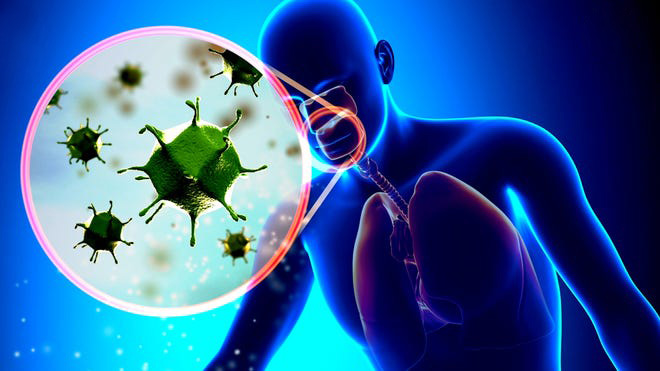



The specialists at Medicinas created Coviflu, a natural remedy obtained from natural ingredients, that can be found as pills administered one per day, for ten days.